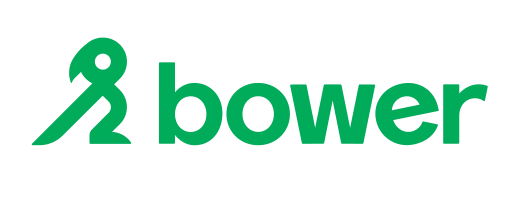

Bower

Stockholm County, Sweden
June 2019
Mobile applications
Service with Minor Environmental Footprint
Denmark,
Finland,
Norway,
Sweden,
United Kingdom,
United States
Through their innovative mobile app, Bower offers a world-unique digital deposit scheme that incentivizes users to recycle various types of product packaging, fostering a heightened awareness of responsible waste management. At its core, Bower's mobile app serves as a user-friendly guide, imparting knowledge on proper recycling practices and materials. This unique approach transforms recycling into an engaging and rewarding experience, allowing users to actively contribute to a more eco-conscious world while reaping tangible benefits. Bower has forged impactful partnerships with globally recognized industry giants like Coca-Cola, L’Oréal, and P&G. These collaborations enable brands to align their environmental objectives with Bower's platform, amplifying recycling efforts and bolstering sustainability endeavors. Earning accolades as a pioneering force, Bower has achieved the distinguished distinction of securing the #1 ranking on both the App Store and Google Play. With an expansive user base exceeding half a million individuals, Bower facilitates the recycling of over 2 million packages monthly, playing a pivotal role in curbing carbon dioxide emissions and promoting environmental well-being. Join hands with Bower and become a part of this revolutionizing journey.
Overall B Impact Score
Governance 11.3
Governance evaluates a company's overall mission, engagement around its social/environmental impact, ethics, and transparency. This section also evaluates the ability of a company to protect their mission and formally consider stakeholders in decision making through their corporate structure (e.g. benefit corporation) or corporate governing documents.
What is this? A company with an Impact Business Model is intentionally designed to create a specific positive outcome for one of its stakeholders - such as workers, community, environment, or customers.
Workers 32.0
Workers evaluates a company’s contributions to its employees’ financial security, health & safety, wellness, career development, and engagement & satisfaction. In addition, this section recognizes business models designed to benefit workers, such as companies that are at least 40% owned by non-executive employees and those that have workforce development programs to support individuals with barriers to employment.
Community 18.7
Community evaluates a company’s engagement with and impact on the communities in which it operates, hires from, and sources from. Topics include diversity, equity & inclusion, economic impact, civic engagement, charitable giving, and supply chain management. In addition, this section recognizes business models that are designed to address specific community-oriented problems, such as poverty alleviation through fair trade sourcing or distribution via microenterprises, producer cooperative models, locally focused economic development, and formal charitable giving commitments.
Environment 19.5
Environment evaluates a company’s overall environmental management practices as well as its impact on the air, climate, water, land, and biodiversity. This includes the direct impact of a company’s operations and, when applicable its supply chain and distribution channels. This section also recognizes companies with environmentally innovative production processes and those that sell products or services that have a positive environmental impact. Some examples might include products and services that create renewable energy, reduce consumption or waste, conserve land or wildlife, provide less toxic alternatives to the market, or educate people about environmental problems.
What is this? A company with an Impact Business Model is intentionally designed to create a specific positive outcome for one of its stakeholders - such as workers, community, environment, or customers.
Customers 2.6
Customers evaluates a company’s stewardship of its customers through the quality of its products and services, ethical marketing, data privacy and security, and feedback channels. In addition, this section recognizes products or services that are designed to address a particular social problem for or through its customers, such as health or educational products, arts & media products, serving underserved customers/clients, and services that improve the social impact of other businesses or organizations.